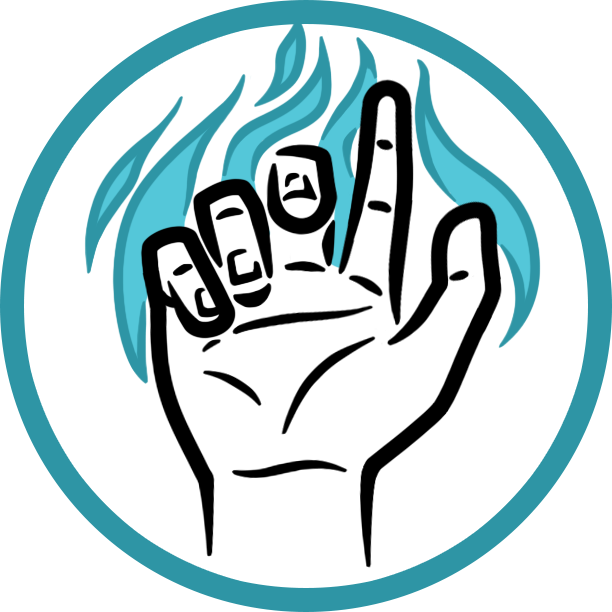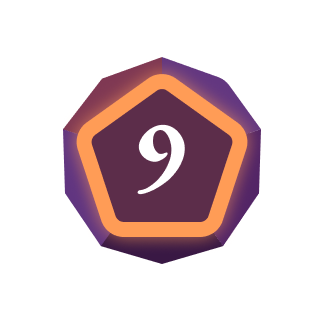Social Interactions
Both during and outside of War elohim will interact with one another. Elohim can also interact with humans. When these interactions are intended to evoke a specific response within the Target, they are considered Social Interactions. The results of Social Interactions are determined by rolling a Social Interaction. There may be some creative interactions that the Host will decide do not fall under the standard Social Interactions category. In those cases the Host may decide to use some other means of determining the outcome. Also, if there are several interchanges in a dialogue outside of combat, the Host may decide to sum up several interchanges into a single roll.
Initiating a Social Interaction takes 1 Action Point. During War, each character can initiate one Social Interaction on each of their Turns unless they have a special ability allowing them to do more. Outside of War, the Host will determine how often Social Interactions are allowed based upon the situation. The slower the current pace of the plot, the fewer Social Interactions should be allowed.
When a character performs a Social Interaction the character’s Skill in the appropriate motive is the base number of Adjustments. The Adjustments are then reduced by the Target’s Composure in that motive (or is increased if the Composure is a negative value). The Target can choose to forgo their Composure for a welcome Social Interaction. As usual, total Adjustments that fall into negative values, allow an enemy Target to make Adjustments to the Social Interactions instead of the initiator.
Certain Disciplines and certain types of Bestial Fallen gain bonuses or penalties in Social Skills or Composures. Also, Items can sometimes provide a bonus or penalty. The total bonus to a single Skill or Composure applied from these sources added together cannot exceed 3.
Interpreting Die Results
Pass (positive)
Neutral
Fail (negative)
-
9-12 is a Pass representing that the character was persuasive in some regard
-
4-8 is a Neutral representing that the character was not persuasive in some regard
-
1-3 is a Fail representing that the Target was unreceptive in some regard
In regard to Epic Interactions:
- If the natural roll contains three or more uncancelled 12s (not canceled by a 1), it is automatically a Succeeded interaction, regardless of how many Adjustments would affect the outcome.
- If the natural roll contains two or more uncanceled 12s, the roll is considered an Epic Interaction and natural 12s may not be adjusted down in an Epic roll.
- If the natural roll contains three or more uncanceled 12's, it is automatically a Succeeded Interaction, regardless of how Adjustments would affect the final outcome. Adjustments may, however, avoid a Superb Success.
- If the natural roll contains two or more uncanceled 1s (not canceled by a 12), the roll is considered an Epic Interaction and natural 1s may not be Adjusted up in an Epic Failure.
- If the natural roll contains three or more 1s, it is automatically a Failed Interaction, regardless of how Adjustments would affect the final outcome. Adjustments may, however, avoid a Supreme Failure.
Adjustments
There are no Factor Values for Social Interactions. The difference between the initiator's Skill and the Target's Composure is the number Adjustments that will be made. Add or subtract any modifiers and then Adjustments can be applied.
Interpreting Social Interaction Results
Social Interactions require at least 3 uncanceled Passes to be considered successful, but have varying degrees of results. The kind of result caused by a Social Interaction depends on the motive of the Interaction and should be appropriate to that motive. The end reaction will be determined by the Host as based upon the situation and how the player has described the Interaction. Results are judged as follows:
-
12 or more Passes = Supreme Success; evoking an extreme reaction
-
7-11 Passes = Superb Success; evoking a strong reaction
-
3-6 Passes = Success; evoking a reaction
-
1-2 Passes = Near Success; evoking a small reaction
-
0 Passes - 2 Fails = Failure; evoking no reaction
-
3 or more Fails = Supreme Failure; minor to moderate opposing reaction and Target ignores further Interactions from this source
The goal is to learn to quickly determine what degree is achieved without manually adjusting each die if possible. Ask yourself, "With my Adjustments, can I get any Passes, at least 3, at least 7, possibly 12?" Social Interaction are often made during roleplaying situations and resolving them quickly can help keep the flow of the story progressing.

[For Breath applying Social Influence can slow this down a tad because the number of uncanceled 12s matters to a some degree.]
Kinds of Social Interactions
While the overall concept is the same, there is a difference between trying to influence a human and trying to influence another elohim.
Interactions between Elohim
Interactions involving Humans











